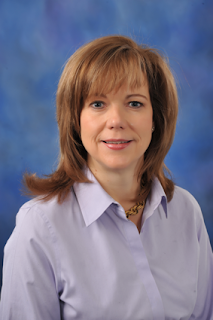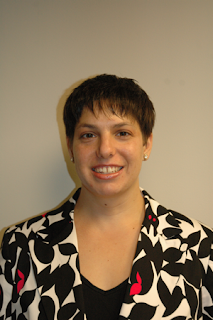Profiles of a Couple of Nuclear Industry Professionals Who are Not Nuclear Engineers
The week of January 24-28 is National Nuclear Science Week. Here is how the organizers of the celebration describe their goal for the week:
National Nuclear Science Week is a national, broadly observed week-long celebration to focus local, regional and national interest on all aspects of nuclear science. Each day will provide for learning about the contributions, innovations and opportunities that can be found by exploring nuclear science.
I was asked to help spread the message that there are a diverse range of opportunities in the industry that do not necessarily require degrees in a physical science or engineering. I am happy to help and to share the following profiles with you.
To most people, a career in the nuclear energy industry means training as a nuclear engineer. For sure the engineering profession is the backbone of the commercial nuclear sector, but the overwhelming majority of engineers come from different disciplines including electrical, mechanical, civil and chemical. Nuclear careers also encompass those who recruit, train and educate others for key roles in the industry. A strong training and education pipeline is an integral component in the nuclear industry’s success. It includes dedicated people with diverse backgrounds, including education, communications, law and medicine. It’s a safe bet that at the beginning of their careers, just about all of them would never have envisioned themselves as playing a role in the field.
Tammy Davis Sayko is a perfect example of someone whose background would not immediately be associated with a career in the nuclear industry. A lawyer by training, Davis Sayko is assistant director of the Nuclear Power Institute (NPI) at Texas A&M University in College Station, Texas. For a number of years, she held several senior administrative positions in the university system, exposing her to a range of academic and research programs that she found enjoyable and challenging. But she was looking for something more.
“When they system board of regents established the NPI in 2007 I saw an outstanding opportunity to become directly involved in some exciting programmatic initiatives and work directly with young people across the state of Texas,” Davis Sayko said. “It has been very rewarding to interact with teachers and students to let them know about the excellent career options in the nuclear industry.”
Through the NPI, the university has partnered with two- and four-year educational institutions and has developed degree programs, certificate programs and courses to educate the existing nuclear work force. NPI is reaching even farther into the educational system through a comprehensive outreach recruiting program at the middle and high school levels to encourage and sustain students’ interest in science, technology and mathematics disciplines.
Davis Sayko also realizes the importance of teachers in the overall success of the NPI programs. “By supporting summer educational programs which bring teachers to the Texas A&M campus to work with research faculty and then to the South Texas Nuclear Plant, we are expanding their horizons and those of their students. The teachers learn about nuclear power and work on research projects to be used in their classrooms,” she said.
When asked what brings her the most satisfaction, Davis Sayko states unequivocally it is engaging with students on all levels and seeing them achieve success through education.
“Knowing that NPI programs are making a difference in the lives of young people—some of whom might not otherwise have succeeded in their education—is a great reward,” she said.
The nuclear industry draws experienced professionals with significant security backgrounds and training to maintain the most robust safeguards in America’s industrial settings. Safety and security at nuclear power plants is the outgrowth of efforts by highly qualified people with diverse skill sets in traditional and non-traditional areas.
For Jennifer Reichert, senior program manager at CRDF Global, nuclear safety must be looked at as a geopolitical issue, where international cooperation is the key to the peaceful uses of nuclear energy.
“For me, the nuclear world represents the intersection of three critical issues facing the world: energy, environment, and security,” Reichert said, adding that establishing a mindset of safety first from the outset is the main focus of her job.
Reichert’s background speaks to the industry’s diversity of education and training. She holds a master’s degree in international relations and economics from the Johns Hopkins School of Advanced International Studies, where the emphasis is on nuclear non-proliferation issues. To Reichert, just as new employees may benefit from mentoring, there is a mentoring aspect to a new nation’s entry into the civilian nuclear power sector.
“At CRDF Global I’m working with a team to establish a nuclear education consortium of U.S. educators and industry to address the human capacity issues that face most new entrants to nuclear power. We want to foster a cadre of people who are not only technically qualified but also fundamentally rooted in the culture of safe and secure use of nuclear energy,” she said.


